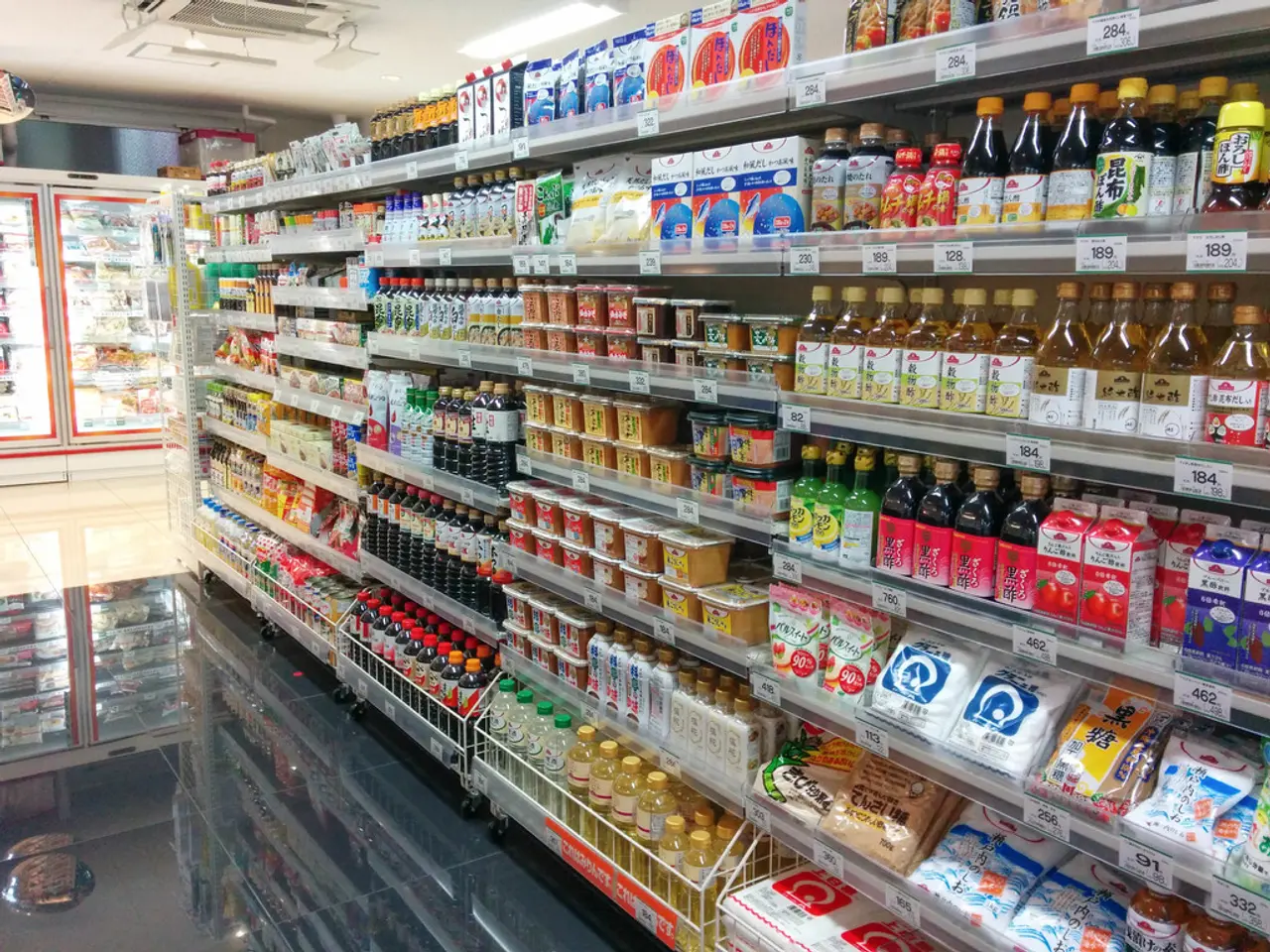Trump's Tariffs Legality Questioned: Key Points from Recent Judicial Decision
In a landmark decision, a federal appeals court has ruled most of President Trump's 'emergency' tariffs illegal under the International Emergency Economic Powers Act (IEEPA). The ruling, which largely affirmed a U.S. Court of International Trade finding from May 2025, has raised concerns about economic uncertainty and potential trade tensions.
The tariffs, affecting a wide range of everyday and industrial products, including smartphones, machinery, cars, appliances, clothing, and more, have been a contentious issue since their implementation. Some goods from countries like India and Brazil face tariffs as high as 50%, while key tariffs remain in place for now, including those on hundreds of billions of dollars' worth of Chinese goods, as well as steel and aluminum imports.
The average U.S. tariff rate has increased to approximately 18.6% since early 2025, with tariffs on Chinese imports soaring above 100% in April. These increased costs have led to significant price increases for some items, such as shoes, apparel, and certain cars. The Budget Lab at Yale estimates that the tariffs add about $2,400 a year to the average household's expenses, roughly a 1.8% price increase on everyday goods.
The federal circuit court delayed enforcement of the ruling until mid-October 2025 to allow time for the Trump administration to appeal the dispute to the U.S. Supreme Court. President Trump responded to the legal blow against his trade policies, stating that "ALL TARIFFS ARE STILL IN EFFECT!" However, Trump has asked for an emergency appeal to the Supreme Court regarding the tariffs.
Senator Amy Klobuchar, one of the sponsors of the Trade Review Act of 2025, which aims to reassert limits on the president's ability to unilaterally impose tariffs without the approval of Congress, praised the court's decision. "Instead of raising costs with tariff taxes, the President should be focused on bringing relief to the American people and lowering costs," Klobuchar stated.
The Pacific Legal Foundation, representing several plaintiffs suing the government, praised the Court of Appeals decision that ruled most of the tariffs illegal. The Trade Review Act of 2025, introduced by Senators Amy Klobuchar, Maria Cantwell, and Chuck Grassley, could potentially limit the president's power to impose tariffs in the future, providing some relief to American households and businesses.
The Supreme Court hearing for the appeal could come as early as fall 2025 or early 2026. Meanwhile, families continue to bear the brunt of the tariffs, paying more for the things they buy most as the legal wrangling over the tariffs continues. The potential indirect impacts on Germany's budget position in 2025 through disrupted trade relations and possible retaliatory measures are also a cause for concern.
Read also:
- Peptide YY (PYY): Exploring its Role in Appetite Suppression, Intestinal Health, and Cognitive Links
- Toddler Health: Rotavirus Signs, Origins, and Potential Complications
- Digestive issues and heart discomfort: Root causes and associated health conditions
- House Infernos: Deadly Hazards Surpassing the Flames








